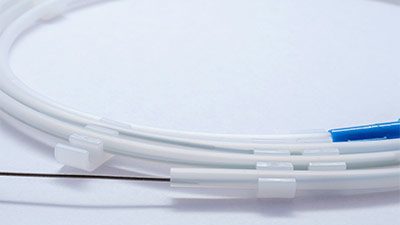Guidewire, Introducer & Dilator Testing
BDC Laboratories offers comprehensive guidewire testing, introducer testing and dilator testing solutions based on the associated ISO 11070 standard and FDA guidance document as outlined below. Guidewires, introducers and dilators are accessories that aid in the advancement and placement of intravascular devices. The associated mechanical performance tests provide a means to fully qualify their safety in meeting the associated requirements. As the BDC team are experts in the testing and evaluation of many intravascular devices, we have a unique appreciation regarding the evaluation of these accessories and the performance requirements as presented in the ISO and FDA guidance documents.
BDC Labs is capable of supporting all aspects of guidewire, introducer and dilator evaluation as presented below, including developing the testing strategy, establishing protocols, validating methods, performing data analyses and providing regulatory quality final reports. Moreover, all test programs can be executed at a level consistent with the data’s application to optimize efficiency in time and cost, ranging from abbreviated early stage development studies to final, formal regulatory submission studies.


Move Forward with BDC
ISO Standards
11070
- Surface Inspection
- Corrosion Resistance
- Needle Point
- Strength of Union of Needle to Hub
- Freedom From Leakage From Sheath Introducer
- Freedom From Leakage Through Hemostasis Valve
- Peak Tensile Force
- Guidewire Fracture Test
- Guidewire Flexing Test
- Peak Tensile Force of Guidewire
- Strength of Union Hub to Dilator
FDA Guidance
Coronary, Peripheral, & Neurovascular Guidewires
- Dimensional Verification
- Visual Inspection
- Simulated Use
- Tensile Strength
- Tip Pull
- Torque Strength
- Torqueability
- Coating Integrity
- Particulate Evaluation
- Coating Lubricity
- Corrosion Resistance
- Kink Resistance
- Tip Flexibility